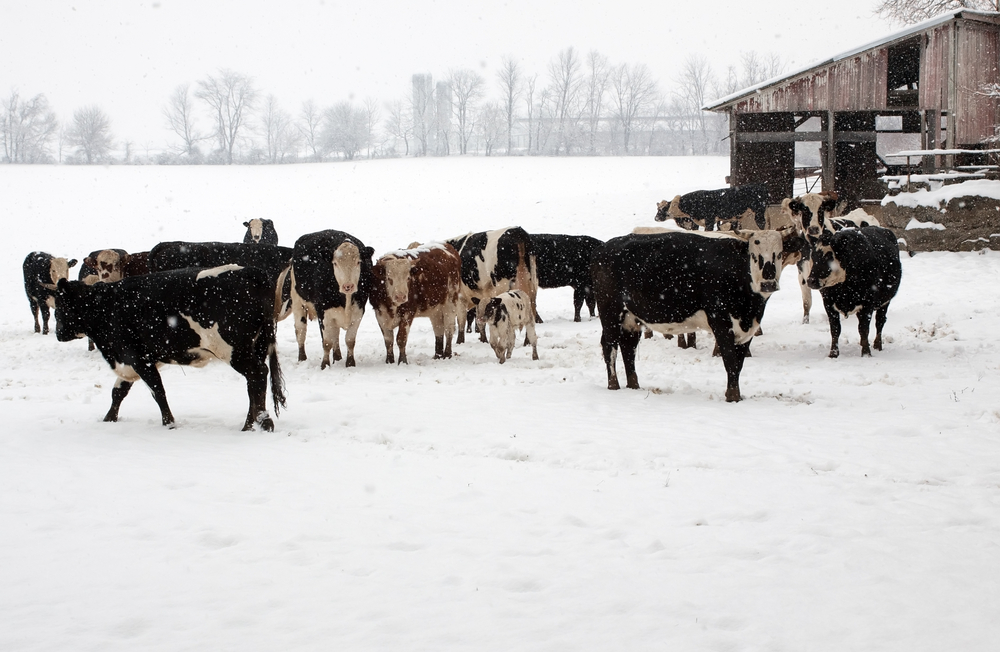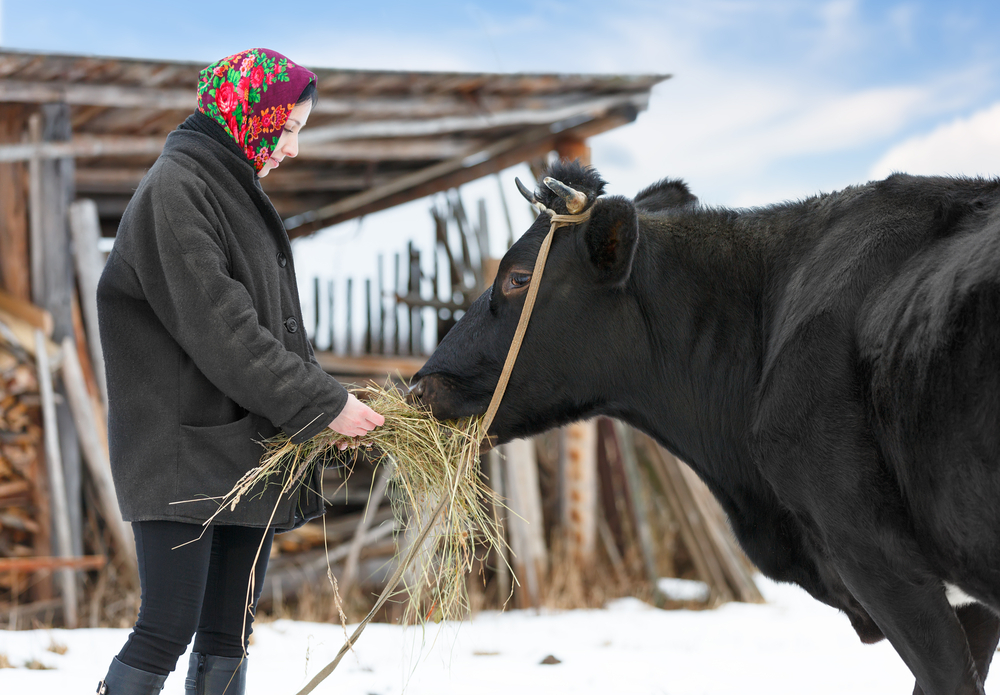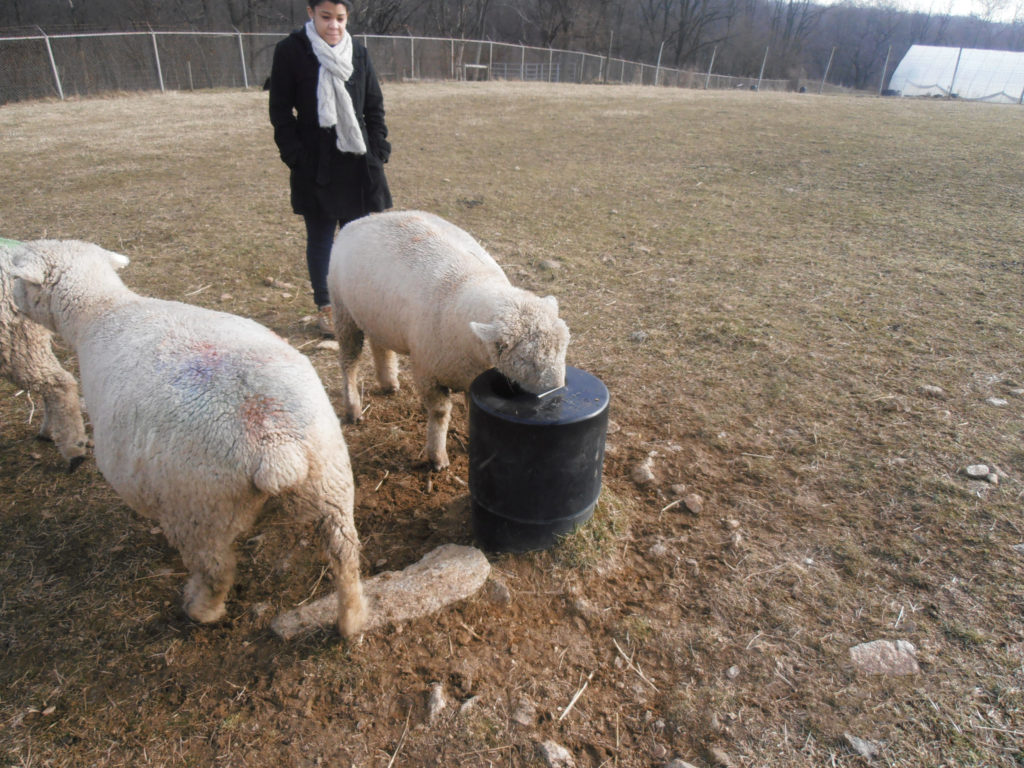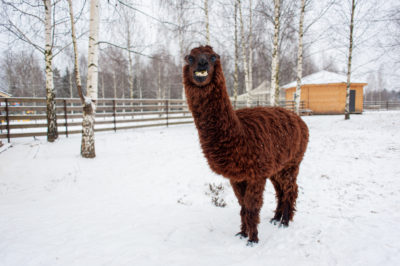Beautiful as a blanket of freshly fallen snow is, snow and ice bring unique challenges to taking care of your livestock. From trying to prevent weight loss to doing what you can to ensure that your animals have enough food and energy and more, that winter wonderland outside makes caring for your livestock and keeping them watered all the more difficult. Fortunately, by addressing the unique needs your animals face during the colder months, you can prevent health problems and help your livestock survive these frigid months.
Here are some of our top winter livestock survival tips to help you prevent problems and keep your animals healthy.
#1. Provide Them With Shelter

This doesn’t mean keeping them in a barn all winter long, of course. However, providing them with shelter in their pastures gives them a place to take cover when they want it, such as when there are heavy winds or lots of snow. If you have a lot of animals, you’ll want to ensure that the shelter is big enough to accommodate them.
While trees in pastures can provide some protection, trees that have shed their leaves don’t do much, if anything. Fir trees work better. If you have trees, ensure that there’s enough room for all of your animals to take shelter. Gullies and hills can help too.
If there are extreme weather conditions, such as a blizzard, you will want to bring your livestock into a barn, if possible. When the weather gets bad, animals can panic in trying to find shelter. Providing them with 3-sided shelters throughout their pastures keeps them healthier and safer. Plus, the warmer your livestock is, the less energy they need in order to keep themselves warm, which can reduce your feeding expenses.
#2. Keep Them Fed

If your animals don’t have enough to eat, they’ll struggle to keep themselves warm and to maintain their energy. Nutritional needs tend to be greater in colder months, as your animals need food for energy in order to stay warm. It’s important to remember that when there’s snow, forage is much harder to come by. This means planning on increasing your food supply so that you can ensure that your animals have enough food to stay healthy and warm.
Remember that different animals have different nutritional needs. In order to ensure that every animal gets enough food, you may divide your livestock into groups and feed them separately. For instance, pregnant animals need more nutrients than other animals.
Keep a close eye on each animal’s body conditions in order to determine how much food they need in order to stay healthy. You can also provide mineralized salt, such as with salt blocks or salt crumbles.
#3. Ensure That They Always Have Water

One of the most important parts of caring for animals is ensuring that they always have enough water. While some may assume that the snow itself takes care of the issue, in truth, animals struggle to stay hydrated during the winter. Water sources freeze, and given how much water livestock need in order to stay healthy, you could be lugging water buckets all day long and still not provide them with enough.
Non-electric automatic waterers, like the Bar Bar A Automatic Cattle Drinker or Sheep / Goats Automatic Waterer, provide your livestock with temperate water on demand. It’s easier for animals to stay hydrated when the water is at a good temperature and there’s no fear of ice.
Since these automatic waterers connect right to your water line, they ensure that your animals always have easy access to water whenever they need. The fact that they are non-electric eliminates the risk of animals being shocked when they try to drink. Plus, since they provide your animals with clean water, there’s less concern of your animals getting sick, as they can with dirty water. Keeping your animals watered is essential to their survival.
#4. Keep Them Clean

Mud and soiled bedding not only makes your animals dirty, but also negatively affects their health. Mud can led to thrush and foot rot, as well as impact your livestock’s ability to stay warm. Dirty bedding increases the risk of sickness, such as with pneumonia. Ensure that they have clean and dry bedding and that you address any mud concerns with gravel or woodchips or by utilizing rotational grazing.
Bar Bar A is here to help you with keeping your livestock watered in the winter. Your animals’ health and survival during this time of year necessitates some extra work on your part, but it’s more than worth it in order to ensure they’re taken care of. Contact us today to learn more about our automatic waterers.

Leave a Reply